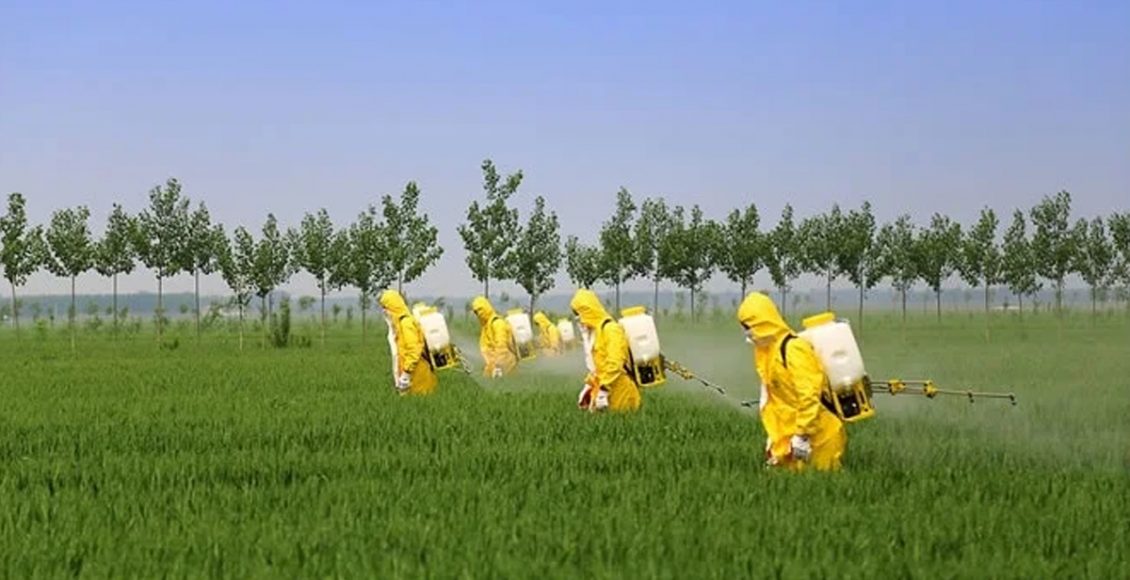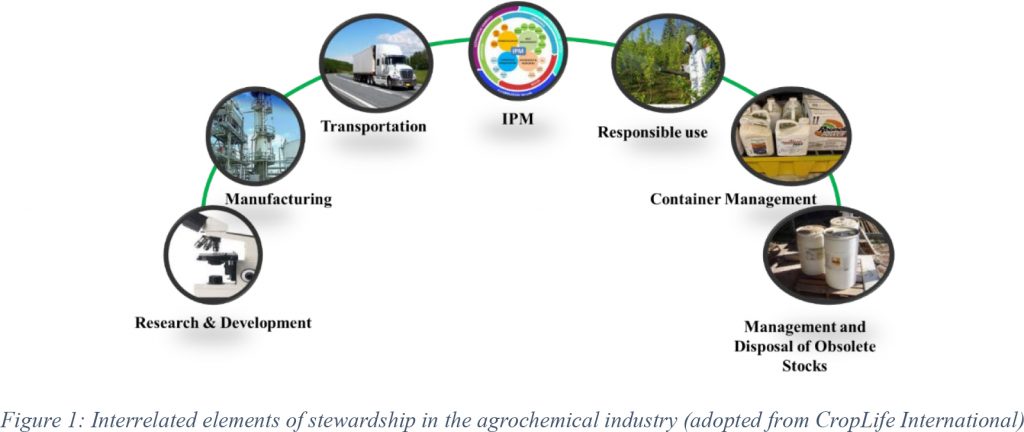
Stewardship in Agrochemical Industry
Stewardship is defined as “management of agrochemical products from inception to its use by farmers, phase-out and disposal” and is a lifecycle approach to product management. CropLife International developed an integrated business model for stewardship from scattered global programmes nearly two decades ago for the agrochemical industry. Major global players in the industry have now embraced this approach. The objective of the stewardship approach is to maximize benefits and minimize risks from the use of pesticide products.

The interrelated elements of stewardship in the agrochemical industry are shown in Figure 1. The stewardship in the agrochemical industry is still evolving. It is founded on the International Code of Conduct on Pesticide Management, a framework of pesticide management for all public and private entities in the pesticide industry. FAO Conference in June 2013 approved the new Code of Conduct on Pesticide Management which now serves as a point of reference concerning stewardship in the industry and government authorities. The agrochemical industry in most countries has either adopted or are in the process of adopting in their business models and through CSR activities and training to the farmers and other stakeholders in the supply chain.
The focus of stewardship at the industry level, both regional and global, is on building a comprehensive approach that benefits farmers in the field first, safeguards the environment, and protects public health. It is a work in progress, especially in Asia and Africa, where millions of small scale farmers lack the knowledge on responsible use of products. The industry and farmers in these regions also need support to fundamentally change their behaviour to ensure that new business practices are adopted in the long term. Though the stewardship is embedded in the business models of most of the global crop protection companies as an ethical way to manage agrochemicals from discovery, development, use and phase-out, they are running stewardship programmes across Asia to ensure farmers and supply chains use products responsibly.
The stewardship practices in the agrochemical industry are need of the hour due to increasing concerns regarding the pollution of the soil, water resources, human and animal health. These concerns are real and are constantly on the radar of the agrochemical sector’s public and private players. It is also the right time for pesticide companies to start focusing on the stewardship of agrochemicals. The first step in that direction will be developing the capacity of all stakeholders involved in the agrochemical R&D, manufacturing, transport, use, and disposal to follow stewardship practices. After the capacity has been developed among stakeholders, monitoring will be key, followed by an audit to assess the gaps in stewardship activities and take corrective actions. The adoption of stewardship practices by the industry and all stakeholders will ensure socio-economic (better human and animal health) and environmental safeguards.
Author

Connect with Authors at: E-mail agribusiness@sathguru.com.
 Grow Beyond
Grow Beyond 

